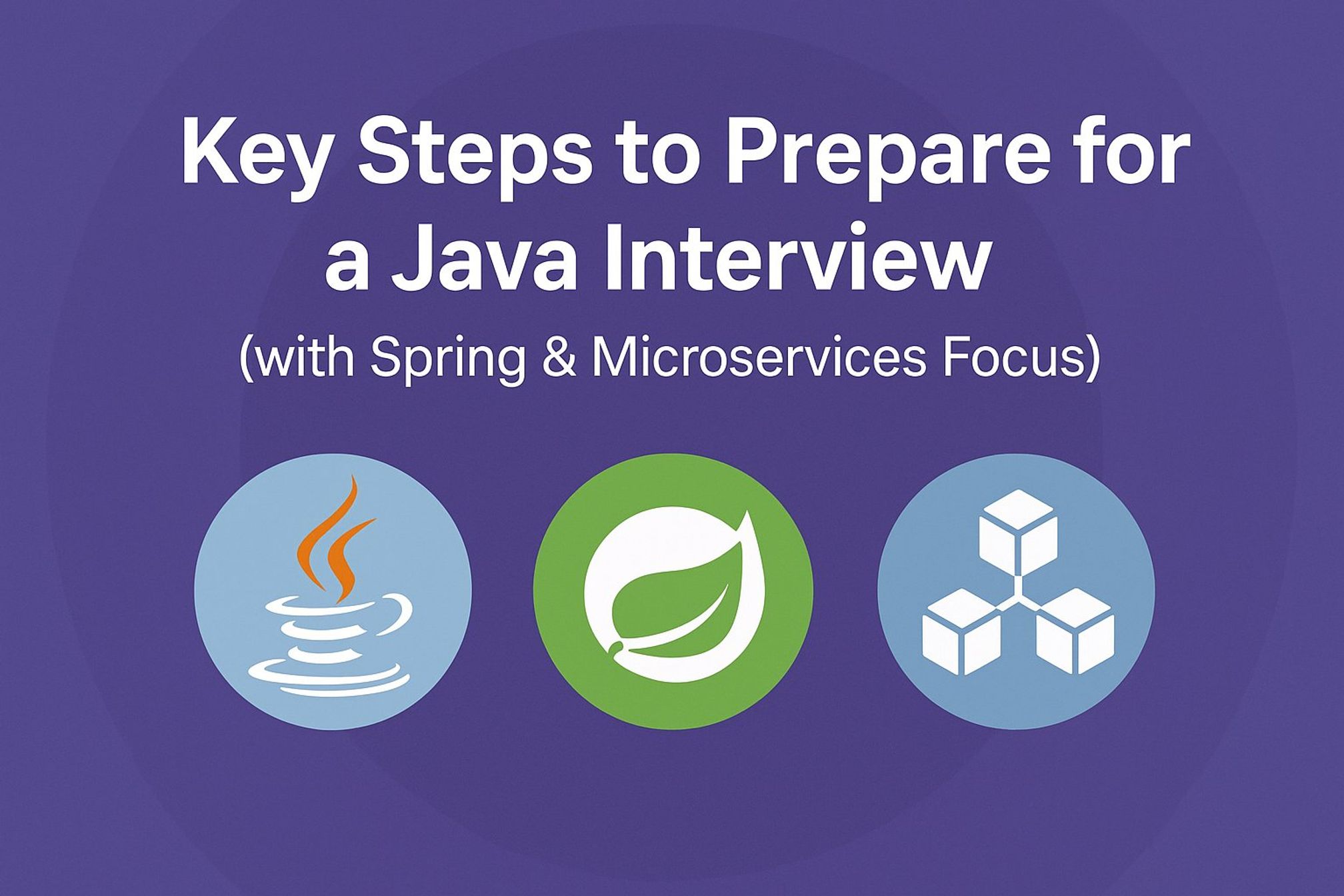Looking for work?Join our work community to make your next move.
Work ThreadsFriday, June 20, 2025
Ace Your Java Interview: The Ultimate Prep Guide for Spring & Microservices

Introduction
Java remains one of the most in-demand programming languages in enterprise software development. With most backend roles demanding expertise in Spring Boot and Microservices architecture, the stakes are higher than ever. Here's a structured plan to help you prepare thoroughly and stand out in your next interview.
Step 1: Master Core Java Fundamentals
Before diving into frameworks and architecture, solidify your understanding of Java basics. Most interviews begin with core Java questions, and your fundamentals can set the tone for the rest of the discussion.
Key Topics to Focus:
- OOP Concepts (Inheritance, Encapsulation, Polymorphism, Abstraction)
- Exception Handling (checked vs unchecked)
- Collections Framework (List, Set, Map, Queue, and their implementations)
- Multithreading & Concurrency (synchronized, volatile, ExecutorService)
- Java 8+ features (Streams, Lambdas, Functional Interfaces, Optional)
- Memory Management (Heap, Stack, Garbage Collection)
📘 Pro Tip: Practice coding problems on platforms like LeetCode, HackerRank, or CodeSignal using Java to strengthen both problem-solving and syntax.
Step 2: Understand the Spring Framework Inside-Out
Spring is at the heart of modern Java development. You must understand how it works under the hood and how to apply it in real-world scenarios.
Focus on:
- Spring Core (IoC, Dependency Injection, Bean Lifecycle)
- Spring Boot (auto-configuration, application.properties, starters)
- Spring MVC (Controllers, REST APIs, RequestMappings)
- Spring Data JPA (Repositories, Query methods)
- Spring Security (authentication, authorization basics)
- Exception Handling and Validation in Spring
🧠 Interview Tip: Be ready to explain the internal workings of annotations like @Autowired, @Component, @RestController, and @Transactional.
Step 3: Deep Dive into Microservices Architecture
Many Java roles now involve working with Microservices, making this a critical part of your interview preparation.
Key Concepts:
- Basics of Microservices and their advantages over Monoliths
- REST API design principles
- Service discovery (e.g., Eureka), API Gateway (e.g., Zuul or Spring Cloud Gateway)
- Load Balancing (Ribbon), Circuit Breaker (Resilience4j or Hystrix)
- Inter-service communication (REST/Feign clients)
- Configuration Management (Spring Cloud Config)
- Monitoring and Logging (Actuator, Sleuth, Zipkin)
- Docker and Kubernetes basics
📂 Project Tip: Create a mini microservices project using Spring Boot to demonstrate understanding. Include services like user management, product catalog, and authentication.
Step 4: Prepare for System Design and Architecture Questions
Beyond technical implementations, interviewers assess your understanding of system scalability and design patterns.
Practice:
- Designing scalable services (e.g., how to design an e-commerce backend)
- Applying design patterns (Singleton, Factory, Builder)
- Understanding of APIs, queues (e.g., Kafka, RabbitMQ), and database scaling
- Familiarity with CI/CD tools and DevOps concepts
Step 5: Mock Interviews & Real-World Practice
Lastly, simulate real interviews with peers or use platforms like Pramp, Interviewing.io, or WorkThreads for mock sessions. The more you speak and explain your thought process, the more confident you’ll be.
Conclusion
Cracking a Java interview requires a blend of technical depth, hands-on experience, and communication skills. Start with core Java, strengthen your Spring knowledge, understand how microservices work, and practice system design. With consistent preparation and practice, you’ll be ready to take on any interview challenge.